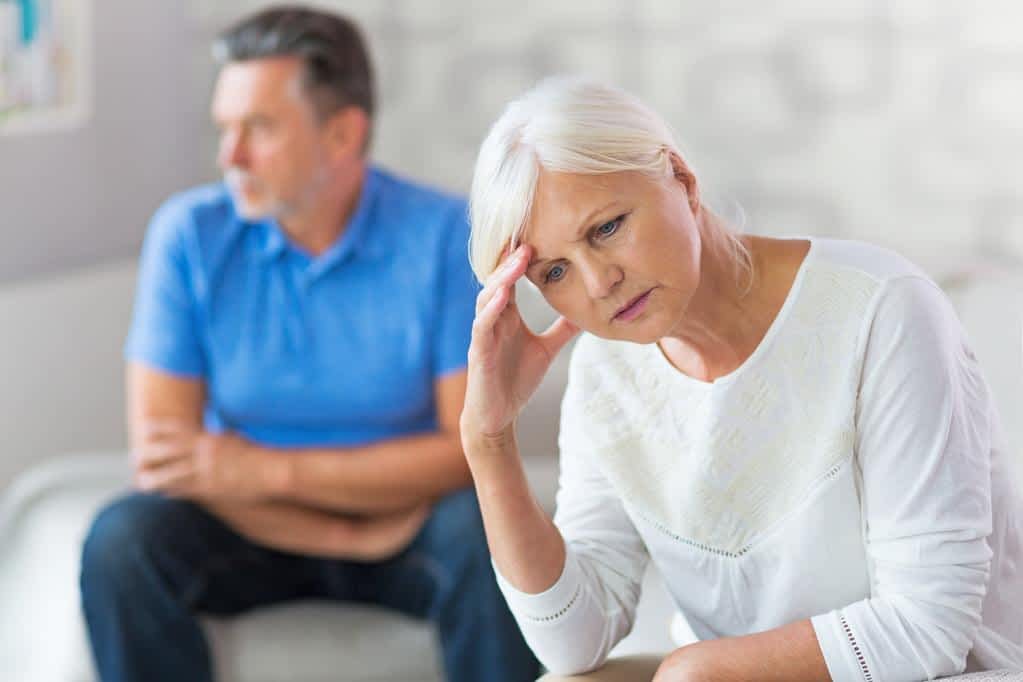Divorce Guilt: When Will It Stop Crushing Your Spirit?
Divorce guilt is a beast that loves to camp out in your brain rent-free.
Believe me, I know guilt – especially the kind that clings to your marriage and your divorce like a bad smell. I’ve screwed up more times than I care to count, and when someone pointed it out, I owned it. I wanted to improve, maybe even squeeze a life lesson or two out of the mess.
The way I see it, if I’m going to feel like 💩 about something, I might as well learn from it.
The thing about divorce guilt is that it never shows up alone. It drags along a whole entourage: your ex, your kids, extended family, nosy friends, the chaos of living arrangements, money stress, and every logistical nightmare you can imagine. All of it piles up, making you feel guilty about divorce no matter how valid your reasons were.
🚀Especially when it feels like you are God-level, forever altering the trajectory of your children’s, yours, and your spouse’s lives. That is an awesomely hard burden to bear when you think in depth about divorce, and the heavy weight it carries.
But here’s the truth: overcoming guilt after divorce isn’t about pretending you did nothing wrong. It’s refusing to let that guilt after leaving a marriage keep you stuck. You don’t have to carry the shame forever. You get to break free from divorce shame, forgive yourself, and finally start living again.
Also, feeling guilty about divorce hits way harder when you’re walking away from comfort and security.
In my twenties, I knew plenty of women whose lives looked like a Pinterest board come to life: money, big houses, fancy cars, picture-perfect everything. But behind closed doors they were emotionally wrecked. Drained. Dying inside. ⚰️
Their marriages were controlling, cold, or downright miserable. And all that “security” wasn’t enough to keep them locked in forever. I used to think, “If that were me, I’d just deal with it. I mean, stability’s worth the trade, right?”
Wrong.
Turns out, I have security. And guess what? It only gets you so far. It doesn’t quiet your anxiety at 3 a.m. It doesn’t give you self-worth. And it definitely doesn’t hand you inner peace wrapped in a bow.
Feelings of guilt after leaving a marriage when you leave behind the “good life” feels like a betrayal—like you’ve somehow failed at gratitude. But here’s the kicker: gratitude doesn’t mean settling. And security? It’s no substitute for fulfillment.
How clueless I was back then. But not anymore.
Divorce guilt feels like a constant weight. It held me back, leaving me stuck in a never-ending state of paralyzing indecision for years. When you make a difficult decision, especially one that feels as heavy as divorce, the emotional toll is inevitable. It’s hard to avoid the bad feelings that come with it.
Guess what? It doesn’t have to last forever. Over time, the sharpness of the guilt dulls. Divorce isn’t easy, and the pain it brings affects everyone involved, but eventually, you learn to carry it differently.
In this article, we’ll do a deep dive to help you understand why divorce guilt lingers, and how to break free from divorce shame and begin healing so you can finally reclaim your peace of mind.

💡Key highlights:
- Why divorce guilt affects women differently and how to stop it from controlling you.
- Practical steps to take immediately to start healing from guilt.
- How to navigate the emotional rollercoaster of guilt in a way that empowers you.
- Discover how guilt can reveal your true values and self-awareness.
- Learn how to transform guilt into motivation for personal growth.
- Find out how to use guilt as a catalyst for positive change in your life.
- Explore strategies to turn guilt into a powerful tool for better decision-making.
- Understand the role of guilt in setting healthier boundaries and practicing self-compassion.

Why Does Divorce Guilt Feel So Heavy?
Divorce guilt can feel like a never-ending thundercloud parked right over your head – especially if you’re a woman. Society just loves to pin the blame on us whenever a marriage falls apart, as if we single-handedly torched the whole thing.
We end up carrying the burden of constantly second-guessing ourselves. Did I try hard enough? Was leaving the worst mistake of my life? Did I break my family on purpose? The questions don’t stop, and neither does the guilt after leaving marriage.
But here’s the thing: just because you’re wondering doesn’t mean you made the wrong choice. Sometimes, overcoming guilt after divorce starts with calling out these ridiculous double standards for what they are—and refusing to let them keep you stuck in shame.
🚩Some common sources of divorce guilt include:
- Leaving your children’s father: You might feel guilty for disrupting their family life.
- Fearing judgment: The stigma surrounding divorce can make you feel like you failed.
- The “could-have-been” mindset: The nagging thought that things could have been different keeps haunting you.
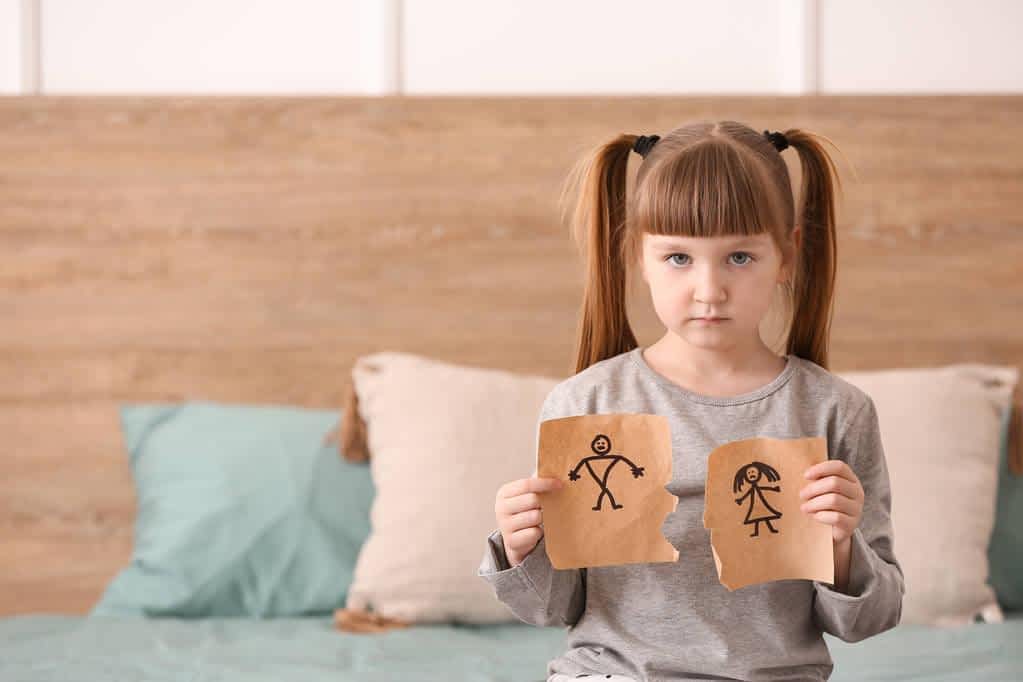
Co-Dependency and Feeling Guilty About Divorce
You need to get honest about something: your own dependence on their neediness is exactly what’s keeping you stuck in this guilt trap. It’s time to break free from that cycle once and for all.
You can only control your own choices. Everyone else has to sit with the consequences of their actions… or their total lack of action.
If they can’t handle you leaving, that’s theirs to work through, not yours. You can’t drag them to therapy, force them to take their meds, or make them show up for life like an adult. You sure as hell can’t hold their hand while they refuse to help themselves.
So stop obsessing over their needs. All that does is fuel more unnecessary guilt after leaving a marriage. Shift your focus back where it belongs, on yourself and what you need to heal, grow, and actually feel happy again.
Divorces built on codependency come with an extra layer of emotional chaos; guilt trips, manipulative pleas, all the drama. Remember: this decision is about your well-being, your health, and your future. You don’t owe anyone your misery just because they’re scared to face their own.
🚀Ending the relationship could be the very spark needed for both you and your spouse to start making necessary changes once free from the marriage. It could also motivate your partner to address their own issues.
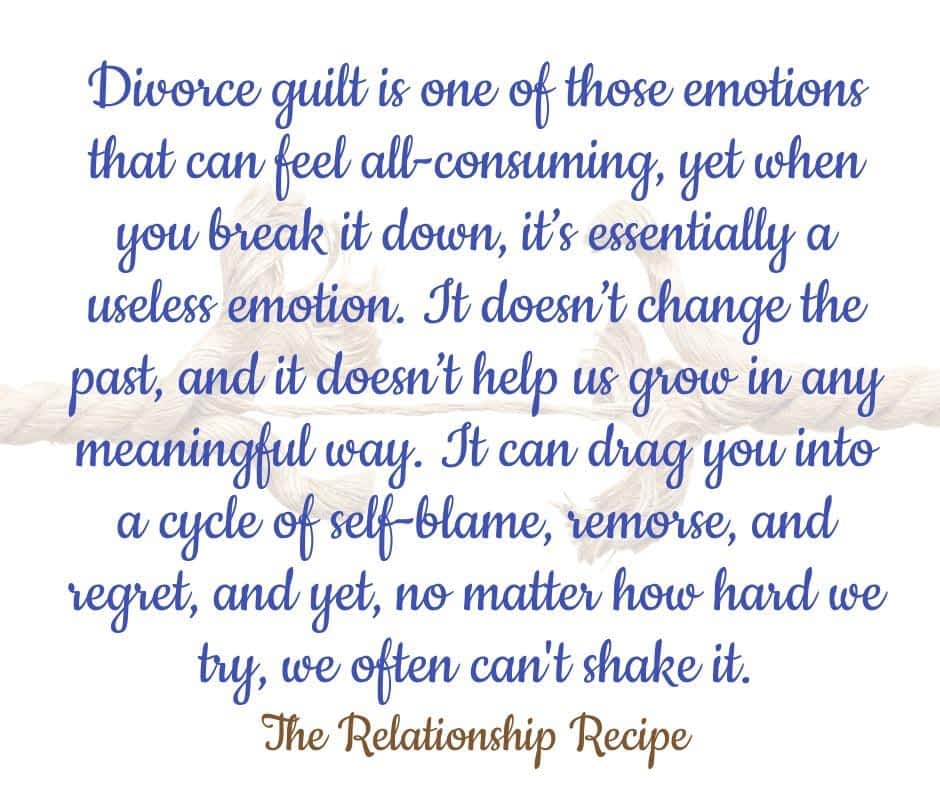
Divorce guilt is one of those feelings that can seem all-consuming, but when you break it down, it’s essentially a useless emotion. It doesn’t change the past, and it doesn’t help us grow in any meaningful way. It can drag you into a cycle of self-blame, remorse, and regret, and yet, no matter how hard we try, we often can’t shake it.
Why Guilt after Leaving a Marriage Is a Useless Emotion
At its core, guilt after leaving a marriage serves no real purpose other than to keep us stuck in a cycle of negative emotion. It’s an emotional response to the feeling that we’ve made a mistake or hurt someone, but it doesn’t offer a roadmap for how to fix things. Unlike emotions such as anger or fear, which can drive action, guilt leaves us feeling paralyzed and unsure of how to move forward.
🚀 Consider the fact that guilt is always tied to the past. 🚀
We feel guilty about things we’ve done, things we regret, or things we wish we could change. But no matter how much we ruminate on these feelings, the past can’t be altered. Guilt keeps us tethered to things we can no longer influence. It asks us to undo something that can’t be undone. And even if we apologize or try to make amends, the guilt doesn’t just vanish; it lingers, sometimes for years.
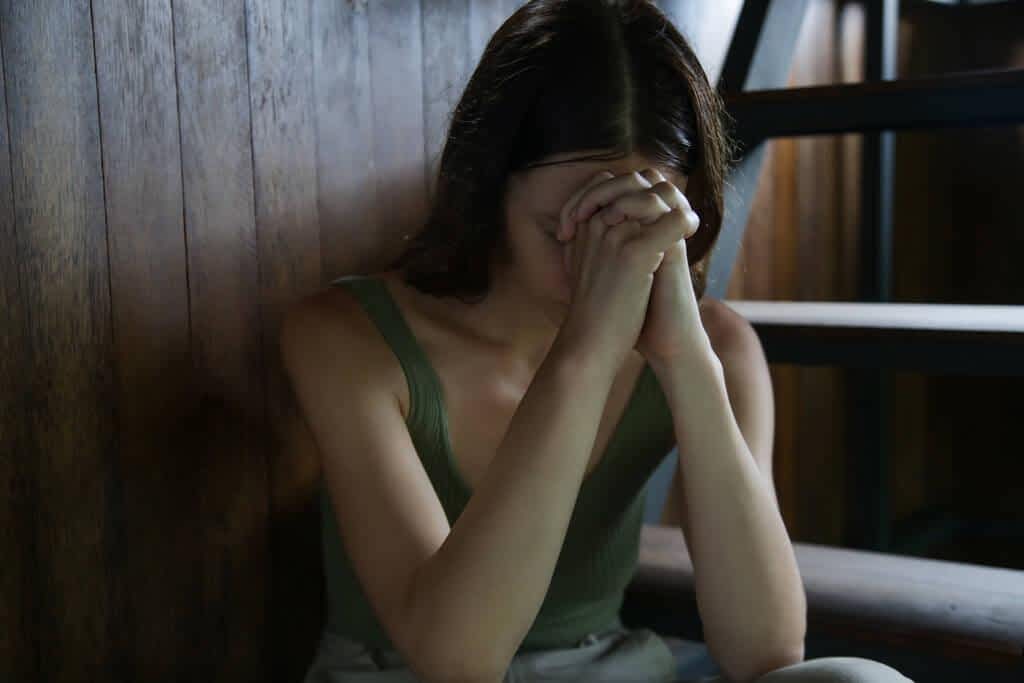
Why We Can’t Shake Feeling Guilty About Divorce
So, if feeling guilty about divorce is so unproductive, why can’t we seem to shake it off? It often stems from deep-seated emotional patterns and societal conditioning. From a young age, we’re taught to feel guilty for mistakes, whether it’s breaking a rule, hurting someone’s feelings, or not meeting expectations.
Guilt becomes ingrained in our emotional makeup. It’s a response we turn to when we feel like we’ve let ourselves or others down.
On top of this, divorce guilt plays a protective role in maintaining our moral compass. We feel guilty when we do something wrong because we know it’s not aligned with our values or principles. In this way, guilt can act as a signal that we’ve crossed a boundary.
But rather than learning from this emotional cue and moving forward, we often stay stuck in the feelings of guilt itself. The human brain is wired to dwell on negative emotions making overcoming guilt after divorce seem nearly impossible.
Our biology amplifies discomfort and tends to ruminate over mistakes, whether we want it to or not. Reframing divorce guilt into something for positive change is the last thing on our minds, because positivity feels so far away – but it can help us break free from divorce shame.
Divorce guilt often ties into our sense of self-worth. When we feel guilty, it’s not just about the actions we’ve taken, but the kind of person we think we are. It becomes an internal dialogue of, “I messed up, therefore I am a failure.” We don’t just feel bad about what happened; we feel bad about ourselves, which makes overcoming guilt after divorce even harder to shake off.

The Cycle of Divorce Guilt and How It Keeps Us Stuck
The cycle of guilt from divorce is incredibly draining. You feel guilty, you try to change the past (which you can’t), and then you end up feeling even worse because you can’t fix the situation.
That leads to more guilt, and the cycle repeats. This emotional loop becomes exhausting and stops us from taking productive action toward healing or growth.
What makes divorce guilt even more challenging is its ability to disguise itself as responsibility. We think that if we keep feeling guilty, we’re somehow taking accountability for our actions.
However, holding onto guilt isn’t the same as holding yourself accountable. Accountability is about recognizing what went wrong and learning from it, guilt, on the other hand, traps you in a loop of negative feedback, where nothing gets resolved.

Tips to Overcome Guilt from Divorce
👉Acknowledge Your Feelings
Recognize that divorce guilt is a natural emotion, but it doesn’t have to control you. Allow yourself to feel the guilt without letting it define your actions moving forward.
👉Shift Focus to Self-Care
Instead of fixating on guilt from divorce, prioritize your well-being. Focus on your mental, emotional, and physical health. Self-care helps break the cycle of guilt and guilt-driven behavior.
👉Practice Self-Compassion
Be kind to yourself. Remind yourself that divorce guilt often stems from societal pressures and your own expectations. Forgiving yourself is a key step in releasing the hold guilt has on you.
👉Reframe the Guilt
Instead of seeing guilt from divorce as a sign of failure, reframe that guilty feeling to view it as an opportunity for growth. Your decision was made to create a better future for yourself and those involved.
👉Seek Support
Talk to a therapist, support group, or trusted friends. They can help you process divorce guilt in a healthy way, reminding you that you’re not alone in your feelings.
👉Set Boundaries with Your Ex
If you’re feeling guilt from divorce because of your ex’s emotional needs, it’s okay to set boundaries. Protecting your own space allows you to heal without being overwhelmed by guilt.
👉Understand the Bigger Picture
Remind yourself that feeling guilty about divorce won’t change the past. Accept that the decision was made for your happiness and well-being, which ultimately benefits everyone in the long run.
👉Forgive Yourself
Let go of the narrative that you’re to blame for everything and break free from divorce shame. Guilt after leaving a marriage can be healed by practicing self-forgiveness. Understand that it’s okay to make decisions for your own future.
👉Reflect on the Lessons Learned
Use divorce guilt as a chance to reflect on what you’ve learned. Each experience teaches us something valuable, and this process is part of your personal growth journey.
👉Celebrate Your Progress
Take time to acknowledge how far you’ve come. Guilt after leaving a marriage can be a long road, but each step toward healing and moving forward is a victory worth celebrating.

Wrapping Up Feeling Guilty About Divorce
Want to know that very best remedy for overcoming guilt after divorce? Time. Time heals all wounds, and it also helps tamp down guilty feelings.
✔️ Feelings aren’t necessarily facts, and people don’t leave happy relationships.
Divorce guilt may continue to weigh heavily on your heart, but remember that you are taking steps toward a healthier, happier future. It’s important to acknowledge that guilt doesn’t serve you, and it only holds you back.
By moving forward, you’re not only allowing yourself to heal, but you’re also giving your spouse the opportunity to face their own challenges and grow. Embrace the change and trust the process, so you can let go of the burden of guilt. Your happiness is worth it, and divorce guilt doesn’t have to define your future.

FAQ: Understanding Divorce Guilt
1. What exactly is divorce guilt?
Divorce guilt is the emotional burden you feel after ending a marriage, often linked to regret, shame, or questioning your decision.
2. Why do I feel so guilty after my divorce?
You might feel guilty because of societal expectations, your partner’s feelings, or concerns about how the divorce impacts your children. These emotions are common but not permanent.
3. How do I stop feeling guilt from divorce?
Start by recognizing that your decision was made for your well-being. Focus on healing, practicing self-compassion, and accepting that guilt doesn’t change the past.
4. Is divorce guilt a normal part of the process?
Yes, feeling guilt from divorce is normal. It’s part of grieving the end of a significant relationship, but it shouldn’t keep you stuck in the past.
5. How long will divorce guilt last?
There’s no exact timeline. Over time, the intensity fades as you focus on healing and moving forward, but it’s okay to feel guilt as part of the process.
6. Can divorce guilt affect my future relationships?
Yes, if you don’t address it. Divorce guilt can make you hesitant or insecure in future relationships, but with time and healing, you can rebuild trust and confidence.
7. Does guilt from divorce ever fully go away?
For some, guilt may never fully disappear, but it becomes more manageable. The key is to process it and learn how to let go of its power over you.
8. How can I stop my guilt from controlling me?
Recognize that guilt is a natural feeling but doesn’t need to control your life. Set healthy boundaries, focus on self-care, and remind yourself why you made the decision.
9. Can I ever forgive myself for divorce guilt?
Yes. Self-forgiveness is essential. Understand that leaving a marriage was a decision made for your well-being, and it’s okay to release the guilt and move forward.
10. How can I support someone dealing with divorce guilt?
Listen without judgment, encourage them to seek professional support, and remind them that healing takes time. Offer compassion and reassure them that guilt doesn’t define their future.
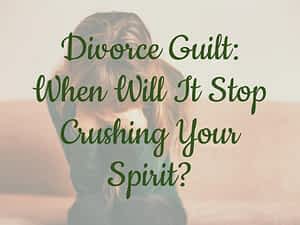
Thank you for reading this post, don't forget to subscribe!


